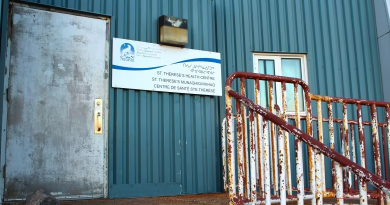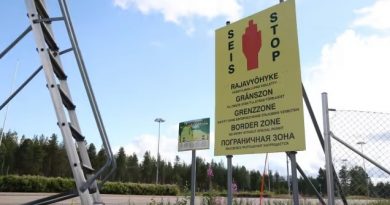Yellowknifers’ plastic going to landfill—but politicians could still explore solution
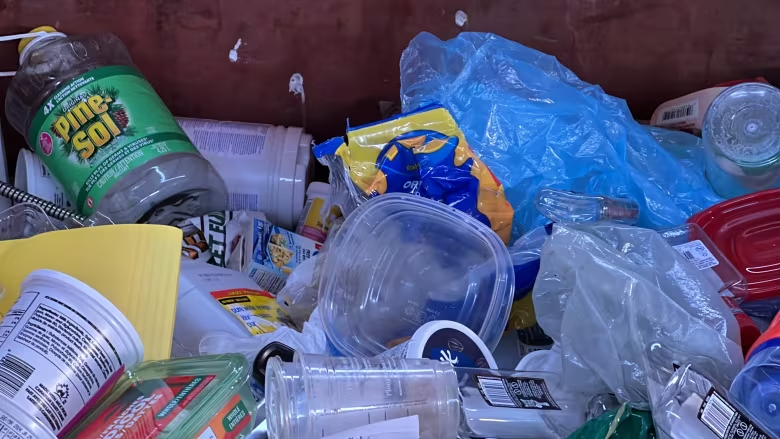
N.W.T.’s waste reduction act now allows for extended producer policy program
Roughly 60 tonnes of plastic collected at blue bin depots around Yellowknife last year ended up in the city’s landfill — a sign of a country-wide dilemma that has been going on for years.
Municipalities throughout Canada have struggled to find a market for plastics since China, which used to be a primary importer of the world’s recyclables, banned 24 types of recyclables and solid waste in 2018.
“There’s no market and many times [the plastic is] contaminated,” said Chris Vaughn, the city’s manager of solid waste and sustainability. He said recycling plastic always cost the city money, and he doesn’t think finding a market for it should be a priority.
But residents should still sort materials at blue bin depots, he said. That’s because the city manages each of those separated materials differently — and some of it is still profitable.
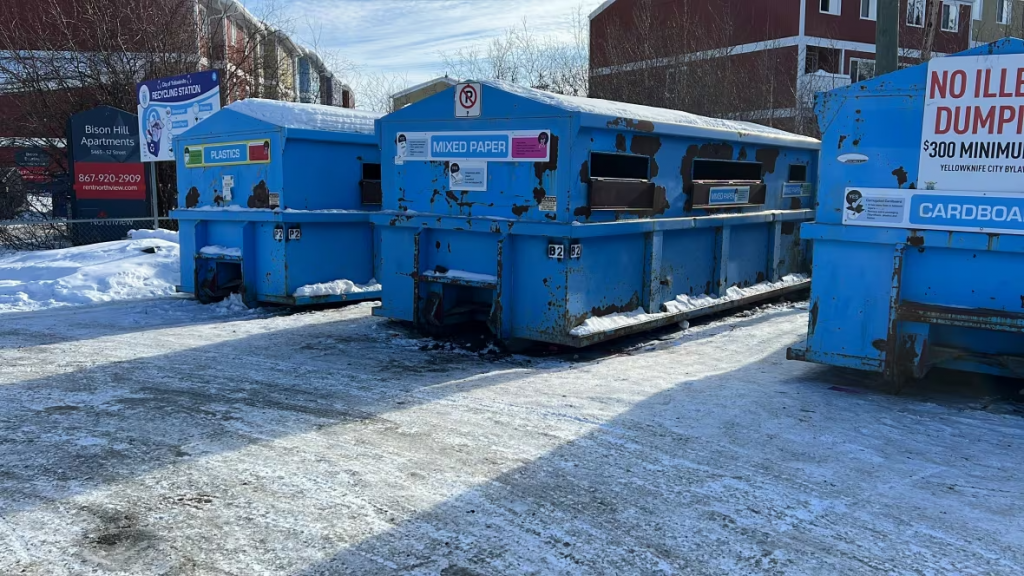
As of 2017, material landfilled at the solid waste facility amounted to an average of 1,100 kilograms per person. The city has set what Vaughn describes as an “aspirational” goal of getting that down to 500 kilograms by 2030.
“There’s two components to that. There’s the waste reduction component and then there’s the waste diversion component,” said Vaughn. Diversion is when waste is generated but the city or the solid waste facility has done some strategy to keep it from the landfill.
Waste reduction, on the other hand, is when garbage isn’t made to begin with. Vaughn believes that’ll be “a societal change that’s probably going to be pushed by policy.
“The landfill is the end of the road when it comes to waste management. There’s not much we can do, so we need to have those conversations at the beginning where things are made and when we’re buying products.”
It’s a conversation that’s already playing out across the country.
Extended producer responsibility
Extended producer responsibility, better known as EPR, is a policy that shifts the cost of recycling off of governments and back onto companies by making producers responsible for dealing with packaging at the end of its life.
All Canadian provinces have some form of extended producer responsibility program already, while the Yukon is working on one for common blue bin items as well as paint, waste oil and antifreeze.
Extended producer responsibility could be introduced in the N.W.T. Changes in the new waste reduction and recovery act, which received royal assent last fall, allow for it. But no current MLAshave triggered a conversation in the N.W.T. Legislature about it yet.
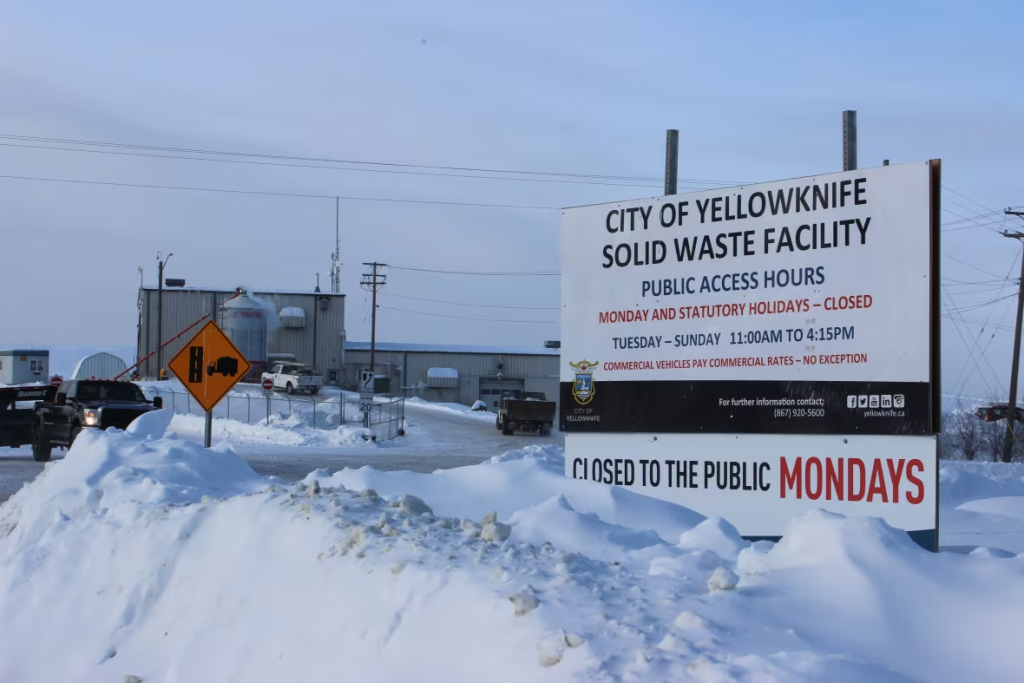
Jennifer Koole, the executive director of the Recycling Council of Alberta, said when China stopped accepting Canada’s garbage and recycling, it demonstrated the responsibility for those materials needed to be brought back to Canada.
“Why do they not want to buy our plastics?” she asked. It could be because it can’t easily be turned into something new, because the plastic is dyed or has bad labels, or has touched food in some way that makes it unattractive, she said.
Under EPR, said Koole, the entity that makes that material becomes responsible for making changes to it that make it more attractive for sale or for recycling at the end of its life — for example, by making a package out of paper or something reusable instead of plastic.
“If those who are causing the problem can feel the pain of the problem, it will help eliminate the problem,” she said.
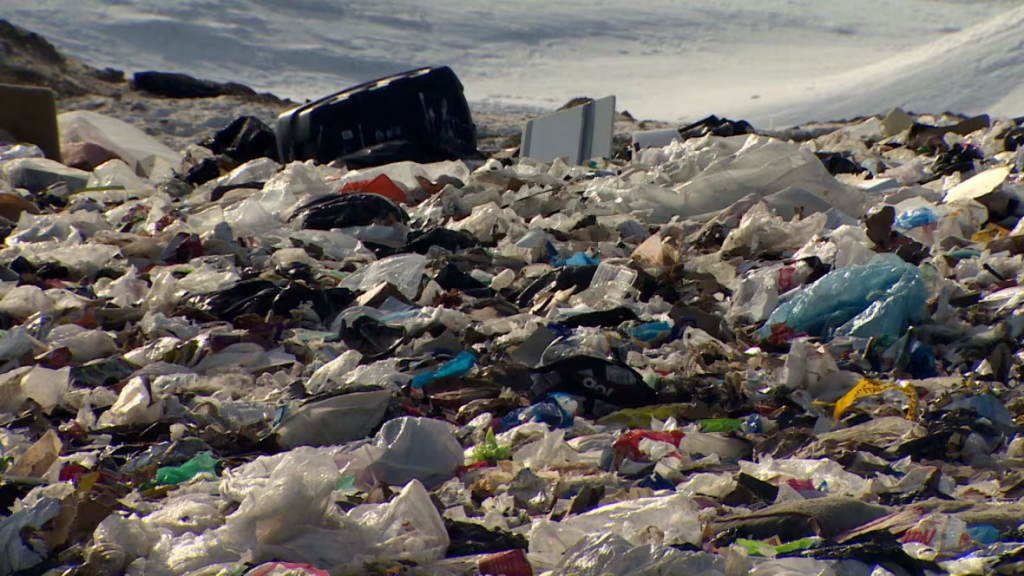
Alberta adopted extended producer responsibility regulations in 2022, but the province is still in the process of implementing it. The responsibility for recycling is being transferred from municipalities to producers in 2025, Koole said.
In many jurisdictions, producers come together and form something called a producer responsibility organization which takes on the recycling responsibilities. Koole said they might use municipal infrastructure and systems that already exist to manage recycling, or they might create a whole new system.
She also said being behind other jurisdictions can be a luxury. “It’s sometimes nice to be a few steps behind in order to watch things unfold and perhaps make some changes,” she said.
The case for sorting
In the absence of extended producer responsibility in the N.W.T., Vaughn is asking the Yellowknifers to continue sorting plastic, cardboard, tin and glass at the city’s blue bin depots regardless.
That’s because each material is managed differently once it gets to the solid waste facility.
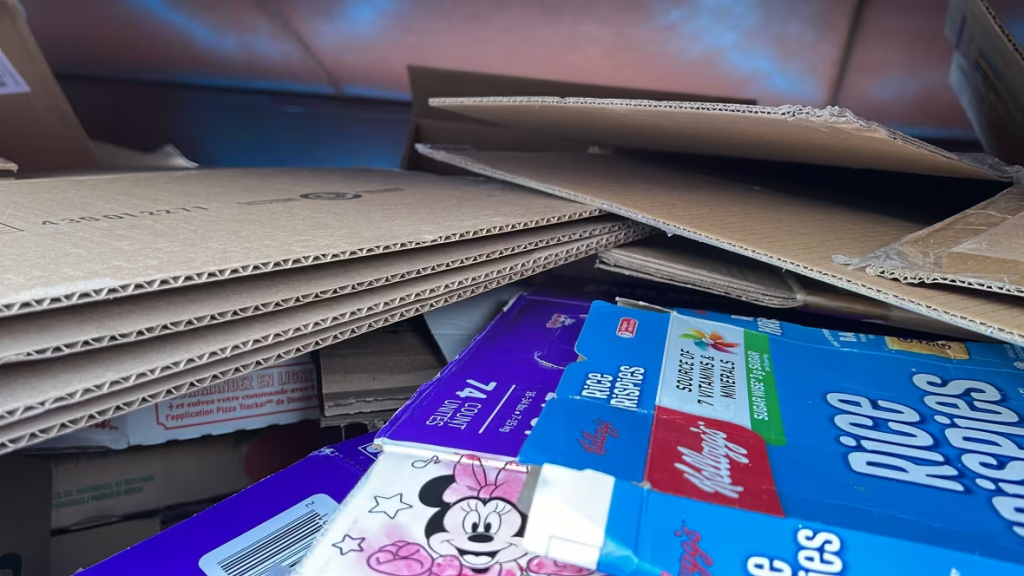
“If it ends up mixed up with your regular waste, your regular household waste, then it automatically has to go to the engineered landfill which is more expensive when it comes to real estate,” he said. “Even if it means placing that waste or that waste stream in a different area of the landfill that’s cheaper to manage, it’s still worthwhile.”
Vaughn said the data from 2023 is skewed by a five-week strike and a three-week-long wildfire evacuation. But, he said, cardboard makes up at least 90 per cent of what’s collected at the blue bins, and it’s the most valuable material collected there. He said the city made $80,000 selling it last year.
Tin can be sold as well, but Vaughn it takes a while before there’s enough to do so. Vaughn said people should use the territory’s bottle depot for glass bottles that qualify, because glass that ends up in the blue bins is crushed and turned to dust and ultimately landfilled too.
Diversion efforts
What goes into the blue bin depots may be the most salient of materials, said Vaughn, but they only make up a small fraction of what passes over the weight scale at the solid waste facility.
“It adds up to maybe two or three per cent of all the waste stream that comes onto site,” he explained.
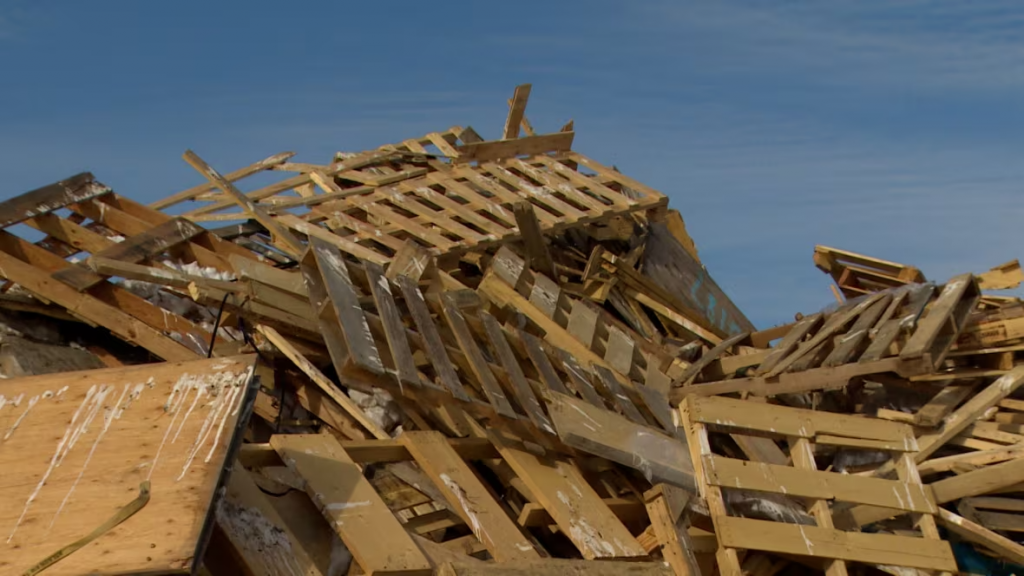
That’s why the city’s diversion efforts are focused on strategically dealing with heavy material like organics, yard waste, wooden pallets and scrap metal — so it doesn’t take up precious space in one of those specially designed cells.
Wood pallets are shredded and, along with yard waste and unsold cardboard, are added to the organics to improve the quality of the soil that’s generated. Scrap metal from appliances and demolitions are sent to a recycler.
The city is planning to build a $6.7-million landfill cell in the coming years.
Related stories from around the North:
Canada: Youth in Arctic Canadian town take aim at grocery store’s plastic use, CBC News
Norway: Norwegian cruise company phases out single-use plastics from its Svalbard establishments, The Independent Barents Observer
Sweden: Sweden generating growing amounts of plastic waste, Radio Sweden
United States: Industry launches campaign to free oceans from plastic… how serious is it?, Alaska Public Media


